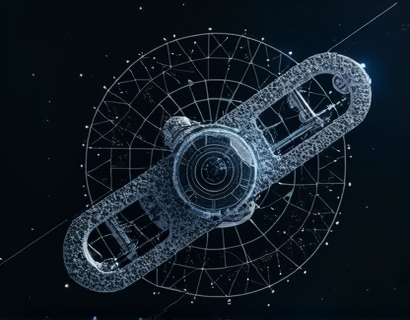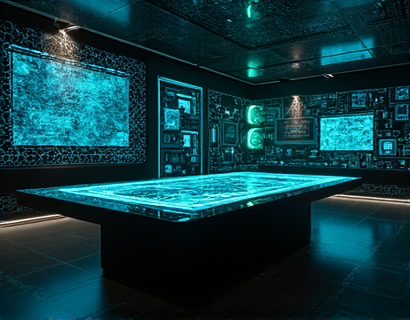Exploring Ancient Wisdom: Unveiling Historical Insights and Cultural Heritage for Modern Understanding
Embarking on a journey through the annals of time, one discovers the profound wisdom and cultural treasures left behind by ancient civilizations. This exploration serves as a bridge connecting the past with the present, offering invaluable insights that continue to shape our understanding of the world. Ancient wisdom, often overlooked in the rush of modern life, holds keys to solving contemporary issues and enriching our cultural heritage. This comprehensive resource aims to illuminate the paths taken by our ancestors, revealing lessons that remain relevant today.
The study of ancient civilizations is not merely an academic pursuit but a vital endeavor that enriches our modern existence. From the monumental architecture of the Egyptians to the philosophical musings of the Greeks, each civilization has contributed uniquely to the human experience. By delving into these historical insights, we gain a deeper appreciation of the cultural tapestry that defines us. This article seeks to uncover and present these treasures, providing a platform for history enthusiasts and cultural heritage seekers to explore and learn.
Ancient Civilizations: Pillars of Human Progress
Ancient civilizations such as the Mesopotamians, Egyptians, Indus Valley, Chinese, Greeks, and Romans laid the foundations of human progress. Each contributed distinctively to fields like governance, science, art, and philosophy. The Mesopotamians, often referred to as the cradle of civilization, developed the first known writing system, cuneiform, which revolutionized record-keeping and communication. This innovation allowed for the administration of complex societies and the preservation of knowledge across generations.
The Egyptians, renowned for their architectural marvels, built structures like the Pyramids and temples that stand as testaments to their engineering prowess and religious beliefs. Their advancements in medicine, mathematics, and astronomy were unparalleled for their time. The Indus Valley Civilization, with its sophisticated urban planning and drainage systems, showcased a high level of social organization and environmental awareness. The Chinese civilization, with its continuous cultural evolution, made significant contributions to technology, philosophy, and governance, influencing countless societies.
The Greeks, with their emphasis on reason and democracy, shaped Western thought and culture. Philosophers like Socrates, Plato, and Aristotle explored fundamental questions about existence, ethics, and knowledge, laying the groundwork for modern philosophy. The Romans, building on Greek and Etruscan traditions, created a legal and administrative system that influenced the development of modern governance. Their engineering feats, such as aqueducts and roads, demonstrated their practical approach to problem-solving.
Lessons from the Past: Applying Ancient Wisdom to Modern Challenges
The wisdom of ancient civilizations offers valuable lessons for addressing modern challenges. One of the most pressing issues today is sustainability. Ancient societies, particularly the Mesopotamians and Egyptians, managed resources like water and land to support large populations. Their methods, though sometimes leading to over-exploitation, provide insights into sustainable practices. For instance, the Indus Valley Civilization's advanced water management systems can inspire contemporary efforts to conserve and efficiently use water resources.
Another critical area where ancient wisdom shines is governance and social harmony. The Greek concept of democracy, though limited in scope, introduced the idea of citizen participation in governance. This principle remains fundamental in modern democratic systems. The Romans, with their legal codes and administrative structures, demonstrated the importance of rule of law and efficient governance. These historical models can guide current efforts to create more inclusive and effective political systems.
Philosophical teachings from ancient cultures also offer guidance on personal and societal well-being. Stoicism, a school of thought originating in Greece and Rome, emphasizes resilience, self-control, and living in accordance with nature. These principles are increasingly relevant in today's fast-paced world, where stress and disconnection are common. By integrating stoic practices into modern life, individuals can cultivate inner peace and clarity.
Cultural Heritage: Preserving the Legacy of the Past
Cultural heritage is a vital component of human identity and continuity. Ancient artifacts, texts, and monuments are not just relics of the past but living connections to our shared history. Preserving these treasures ensures that future generations can learn from and be inspired by the achievements of their ancestors. Efforts to document, protect, and restore historical sites and artifacts are crucial in maintaining this cultural legacy.
Technology plays a significant role in preserving cultural heritage. Digital archiving, 3D modeling, and virtual reality allow for the detailed documentation and accessibility of ancient sites and artifacts. These tools enable researchers and the public to explore and understand historical contexts in immersive ways. For example, virtual tours of ancient ruins provide insights that are otherwise difficult to obtain, making history more accessible to a global audience.
Education is another key aspect of preserving cultural heritage. Incorporating ancient history into curricula helps foster a deeper appreciation of the past and its relevance to the present. By studying ancient civilizations, students gain a broader perspective on human achievements and challenges, fostering critical thinking and cultural empathy. Educational programs that focus on hands-on learning, such as archaeological digs and cultural exchanges, further enrich this experience.
Timeless Teachings: Insights for Modern Living
Beyond historical insights, ancient wisdom offers timeless teachings that can enhance modern living. The concept of balance, prevalent in many ancient philosophies, encourages a harmonious approach to life. In traditional Chinese medicine, the balance of yin and yang is essential for health and well-being. Similarly, the Greek idea of the "golden mean" advocates for moderation and balance in all aspects of life. Applying these principles can lead to greater personal fulfillment and societal stability.
Mindfulness, a practice with roots in ancient Buddhist traditions, has gained popularity in modern times for its benefits in reducing stress and enhancing mental clarity. By focusing on the present moment and cultivating awareness, individuals can improve their overall well-being. Ancient meditation techniques, such as those practiced by the Stoics, offer practical tools for managing anxiety and fostering resilience.
The importance of community and social bonds, emphasized in many ancient cultures, remains crucial in today's interconnected world. The Greek concept of "polis," or the city-state, highlighted the significance of community in achieving individual and collective prosperity. Building strong, supportive communities can mitigate the isolation and disconnection often experienced in modern society. Initiatives that promote community engagement, such as local festivals and volunteer programs, can strengthen social ties and enhance quality of life.
Conclusion: Bridging Past and Present
Exploring ancient wisdom and cultural heritage is a journey that enriches our understanding of the world and ourselves. By examining the achievements and teachings of past civilizations, we gain valuable insights that can inform and improve our modern lives. This connection to the past fosters a deeper appreciation of human history and cultural diversity, promoting a more empathetic and informed society.
As we continue to face global challenges, the lessons from ancient wisdom remain as relevant as ever. Whether it's sustainability, governance, or personal well-being, the knowledge of our ancestors offers practical and philosophical guidance. By preserving and learning from this heritage, we honor the past while building a better future. Embarking on this exploration is not just an academic exercise but a vital endeavor for anyone seeking to understand the profound impact of history on the present and future.










































